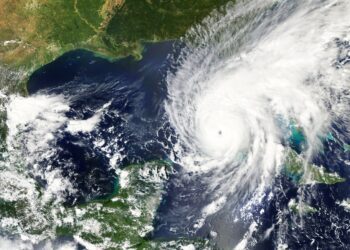There was once a time when the global jet set aroused the admiration and envy of ordinary people when they boarded private jets for a pleasure trip to the latest in-vogue destination. These days, however, amid climate change, public attitudes have turned negative.
And yet some of the superrich and famous still haven’t grasped the need to kick the habit of luxury flying, risking shitstorms on social media that brandish them as “climate criminals.”
Last summer, this happened to Kylie Jenner — a darling of US social media and famous for being famous — who posted a video of a 17-minute flight between two California airports barely 70 kilometers (43.49 miles) apart. The short hop caused about one ton of CO2 emissions — an amount for which an SUV would drive over 2,500 kilometers (1,550 miles).
Many prominent figures face similar finger-pointing for their hypocrisy, including former Microsoft chief and philanthropist Bill Gates. While he was writing his book “How to Avoid a Climate Disaster” in 2017, his four private jets emitted 1,629 tons of CO2 during 356 flights.
Only last week, the President of the European Council, Charles Michel, who has to defend the European Union’s Green Deal, became the focus of criticism after the news magazine Politico reported he had used private jets for 64% of his travels since taking office in 2019. One trip to Beijing in December 2022 cost the European taxpayer €460,000 ($504,000).
“I understand people find that expensive and I understand the sensitivity concerning private flights,” he said, trying to defend himself in interviews with Belgian media. He then quickly added that European Commission President Ursula von der Leyen also uses private jets extensively but “Nobody blames her for it.”
Private jets, the dirty secret of aviation
There is no denying that private jets are the biggest polluters in aviation, as aircraft emissions are calculated on the basis of the number of passengers on board. Rarely are there more than a few people flying on private jets.
Europe’s leading clean-transport nonprofit Transport & Environment (T&E), calculated in a 2021 report that private jets cause between 5 and 14 times more pollution per passenger than commercial flights. Private jets are seven times more polluting than flying business class and up to 150 times more than electricity-powered trains.
Although the private jet market is comparatively small in size, activists claim it has a disproportionate impact on carbon emissions. In the UK, for example, private jets are responsible for a fifth of all international flights to and from the country. Globally, the 1% of air travelers who use private jets cause half of all emissions by passenger flights, T&E said.
French billionaires also face shaming campaigns for their extensive use of private flights. People like Bernard Arnault – founder and CEO of luxury company LVMH and currently the world’s richest person — operate whole fleets of corporate jets. A Twitter account called “I fly Bernard,” which boasts 66,000 followers, tracks Arnault’s flight activities with data from publicly available sources.
Five LVMH jets spewed over 257 tons of CO2 into the atmosphere during 16 flights in November 2022. By comparison, the average French citizen causes annual emissions of about ten tons.
Shopping sprees by plane
Criticism about private jets is also growing louder because a majority of flights cover just short distances for which there are more climate-friendly alternatives.
Europe’s most-frequented route for business aviation is between Paris Le Bourget — the biggest airport for private aviation on the continent — and Geneva, a distance of just 410 kilometers. A high-speed TGV train connection also runs between both cities, taking three hours and 13 minutes.
Ranking second is the 686-kilometer route from Paris Le Bourget to Nice, which is also served by high-speed rail in just under 6 hours.
After France and the UK, Germany is Europe’s third-biggest private jet market, with some 58,424 flights in 2022, emitting a total of 208,645 tons of CO2, according to research institute CE Delft.
Almost three-quarters of all departing business jets in Germany are routes shorter than 500 kilometers; nearly two-thirds are less than 300 kilometers. Last year, more than 500 private jets flew between Hamburg and the island of Sylt — a distance of some 190 kilometers that takes about three hours by train.
How to curb jet-set habits
Despite the huge carbon footprint of private jets, the market segment continues to grow. An unprecedented pandemic boom over the last three years often saw jets fully booked.
But climate activists and green politicians are threatening to throttle the sector’s growth. Activists recently blocked Amsterdam’s Schiphol airport in protest at the number of private jets, while French Transport Minister Clement Beaune seeks EU-wide regulation to restrict their use. His plan includes making the data of all private flights available to the public and higher taxes on private flying.
According to the T&E, at least €3,000 ($3,028 )in taxes should be levied on every private jet departure in Europe. Owners of private jets have an average net worth of €1.3 billion, so the penalty would hardly be felt, the nonprofit said. It also proposes that from 2030 private flights on routes below 1,000 kilometers be powered only by green hydrogen or electricity.
Meanwhile, the first airports in Europe, including Amsterdam’s Schiphol airport, have announced a ban on private jets from 2025/26. The move will allow the airport to maximize the use of scarce departure and landing slots for bigger aircraft.
The move is unlikely to cause much consternation, however, as private jet operators don’t really like to fly from big airports, as larger jetliners usually get runway priority, meaning they have to watch dozens of flights take off and land before they can depart.
Source: DW












